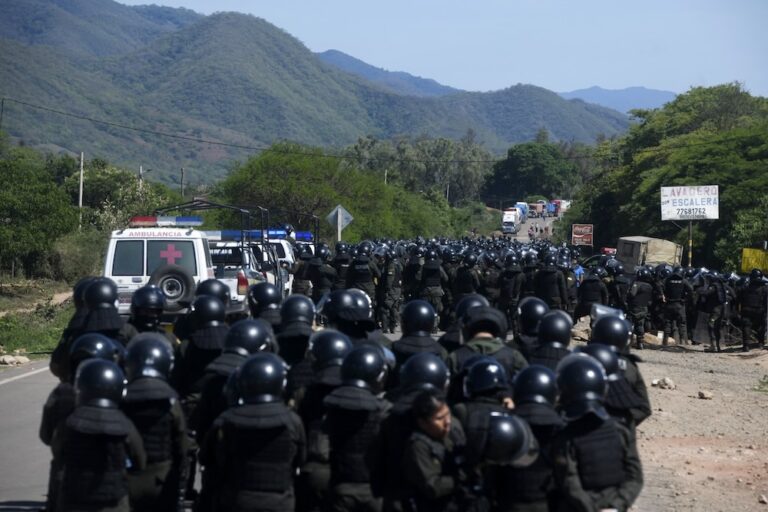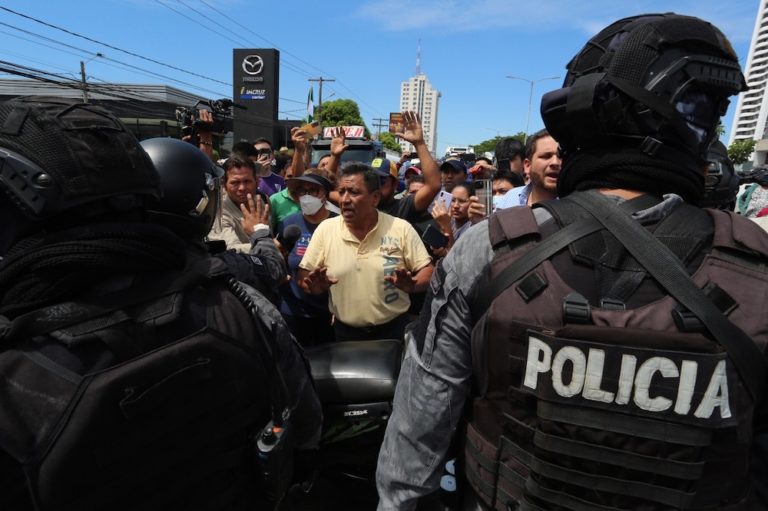One of the laws being debated would require media outlets to broadcast every speech by President Evo Morales and another would ban media from conducting interviews or voicing opinions concerning the appointment of judges.
(IAPA/IFEX) – Miami, May 25, 2011 – The Inter American Press Association (IAPA) today expressed concern at the state of press freedom in Bolivia, at a time when a number of proposed laws are being questioned, among them one that would require every speech by President Evo Morales to be broadcast in national hookups and another that would ban media from conducting interviews or voicing opinions concerning the appointment of judges.
The federal government is pursuing a Telecommunications Law that would require all operators of radio and television broadcasting, whether on air or by cable, to transmit free of charge all official messages issued by Morales.
IAPA President Gonzalo Marroquín declared, “We have before us an abuse of power which restricts freedom of the press and media’s editorial stances, in imposing the obligation of disseminating free of charge the messages of a president,” saying that he was opposed to laws that continue to curtail freedom of expression in several South American countries.
Marroquín, president of the Guatemala City, Guatemala, newspaper Siglo 21, added that in every democratic country and one where the rule of law reigns, regarded as obligatory are only those messages that are of public use and interest, such as in cases of national security, internal unrest or health emergencies.
“An imposition of this kind,” Marroquín said, “is to give license to the government to air propaganda without limits, even when the information is not relevant for the people.” The draft law would cut the length of licenses granted to broadcast media from 20 to 10 years and impose penalties for non-compliance.
For his part, the chairman of the IAPA’s Committee on Freedom of the Press and Information, Robert Rivard, editor of the San Antonio Express-News, Texas, joined local press organizations in declaring as positive the fact that President Morales was seeking to have the Legislative Assembly amend the Electoral System Law. The controversy over this concerns the law’s Article 82, which prohibits judges aspiring to belong to the judicial branch of government from giving interviews, issuing opinions, taking part in radio or television broadcasts or press events and making political propaganda during three months prior to elections.
The amendment, now under review in Congress, seeks to eliminate these restrictions for the elections of judges that are to be held on October 16 this year, as well as penalties for media that disseminate this kind of information, opinion or propaganda.
Meanwhile, the co-chairman of the IAPA’s Committee on Freedom of the Press and Information, Claudio Paolillo, editor of the Montevideo, Uruguay, weekly news magazine Búsqueda, recalled that the IAPA has been opposing legislative limits being placed upon the press, which it says violate the Press Law and principles enshrined in the Constitution.
Among such restrictions, said Paolillo, who headed an IAPA international mission to La Paz last year, was the Law Against Racism and All Forms of Discrimination, which despite having a laudable intent “hides in its articles a real threat to and gag on” journalists and media.
Articles 16 and 23 of that law set penalties for journalists and fines and suspension of licenses for media when they are considered to have published racist news, comment or opinions.


